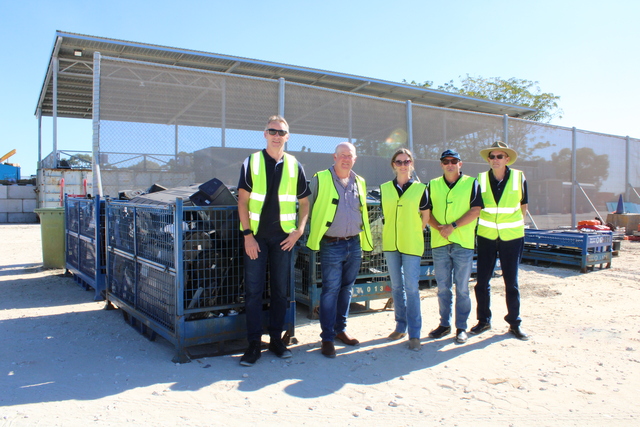I am very pleased to be contributing to National Perspective and Local Government Focus again for 2003. With a raft of issues important to Local Government and the communities for which they work on the agenda this year, our work will be cut out for us. From what I have seen of many Councils over the last year — in terms of professionalism, improved business management, and innovation and resourcefulness — I am confident much will be achieved at the local level.
During April, I will be convening a roundtable with the Local Government Associations in Melbourne and they have been invited to submit agenda items. As Minister for Local Government, I want to hear about key issues affecting the Local Government sector and to continue to build strong linkages with all of the associations.
At our meeting last year, I reiterated my keenness to take up issues of particular concern to Local Government with my Ministerial colleagues. Several of the items we discussed have been progressed, such as the cost-shifting review, greater cooperation between Local Governments and other levels of government, and in relation to a range of transport issues impacting on local communities.At that meeting I explained my support for the cost-shifting review to be undertaken by a Federal Parliamentary Committee. The rigorous public debate I said was essential is occurring, with a great many Councils, individuals and other stakeholders having taken part, in person and in writing.
Planning – the Commonwealth’s interest
Planning is, in most cases, a State/Territory and Local Government responsibility. The Commonwealth, however, has a role to play in encouraging the delivery of the best possible land use planning within Australia through sustainable development practices and good planning governance. Officers from my department, along with representatives from each State/Territory planning agency, meet regularly as the Planning Officials Group. The group has a broad and ongoing agenda to address planning issues of national concern and to develop appropriate policy responses.
The Commonwealth has demonstrated its interest in and commitment to streamlining government processes and regulations — in the development sector in particular — by facilitating and funding the Development Assessment Forum. The forum brings together all spheres of government, the development industry and relevant professional bodies, to work towards the harmonisation and reform of development systems at a national level.
Recently, the Development Assessment Forum appointed the Centre for Developing Cities at the University of Canberra to undertake a major consultancy project to develop a leading practice model for development assessment.The project, due for completion and consideration by the forum in mid 2003, will provide a model that aligns with the key elements of the development assessment process in Australia. These are:
- pre-application
- lodgement
- notification/consultation
- assessment
- decision making
- appeals
- enforcement/compliance.
Some of the key tasks will be to identify the roles and responsibilities of stakeholders, monitor the effectiveness of innovative legislation, processes and technologies and to identify ways of enhancing private sector participation. The project will provide examples of leading practice and recommendations for disseminating findings to stakeholders, with a view to implementing leading practice nationally. Because of its critical role in development assessment, Local Government has a wealth of knowledge available to be tapped for this project and I encourage its participation. More information about how to become involved in the Leading Practice Model for DA project and about the Development Assessment Forum generally is available from the website at www.daf.gov.au.
Home-based work for Local Government staff?
Another federally funded project to yield results in the first half of this year will be the study into home-based work in Local Government. The Local Government Managers Association is managing the project and the Centre for Local Government at the University of Technology Sydney was recently appointed to carry out the research. The study will encompass jobs in urban, regional and rural areas and be looking at their suitability for home-based work. Successful home-based work arrangements depend on the right organisational, professional, environmental and technological factors; these will be identified as will practical strategies to promote them.
I encourage all who work for their communities through Local Government to participate in the various forums available to them during year. There will be much to engage us. Your participation helps to ensure that communities are truly represented and have a genuine say in how they live.







